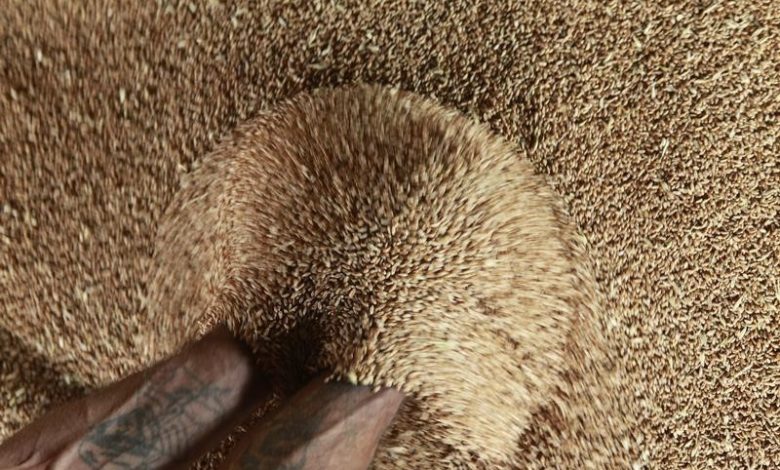
UN’s Grain-for-Fertiliser Plan Lacks Appeal for Moscow, Says Reuters
Russia has little incentive to accept a United Nations proposal aimed at unblocking Ukrainian grain exports through the Black Sea. The proposal suggests that in return, Western sanctions preventing Russian and Belarusian fertilizer exports would be lifted, according to industry experts in Russia.
U.N. Secretary-General Antonio Guterres mentioned that he has been in “intense contact” with various stakeholders, including Russia, Ukraine, Turkey, the United States, and the European Union, urging a spirit of “goodwill” to restore Ukrainian grain exports amid a worsening global food crisis.
However, the sentiment in Moscow appears to be one of stubbornness. Russian officials attribute the ongoing food crisis to the Western sanctions imposed following Russia’s military intervention in Ukraine. Kremlin spokesperson Dmitry Peskov pointed out that President Vladimir Putin is aware of the serious risk of famine, but he claimed that Ukraine has obstructed its own grain exports by mining the Black Sea.
Ukrainian Foreign Minister Dmytro Kuleba accused Russia of trying to “blackmail” the international community by suggesting a deal to unblock ports in exchange for eased sanctions.
As the world’s largest wheat exporter, Russia typically competes with Ukraine for markets in the Middle East and Africa. This year, Russia anticipates a record harvest, bolstered by continued exports from open Black Sea ports, while Ukraine’s ports have remained blocked since Russia’s troop movements began.
Furthermore, Russian fertilizers are still reaching numerous export markets outside of Western nations. A source from the Russian grain industry indicated that any barter for grain is unlikely at this time, suggesting that if a trade is to occur, it would be for something more substantial.
At present, Russia appears to be in a strong position. Global wheat prices have surged due to disruptions in the Black Sea, alongside other factors such as adverse weather conditions and export bans from countries like India. Futures for wheat in Chicago reached a record high in March amid supply concerns and have risen about 30% since late February.
Russia is poised to benefit from high global wheat prices, expecting to boost exports in the upcoming marketing season due to an anticipated record crop of 87 million tonnes. Estimates from various consultancies suggest that Russian wheat exports could range from 39 million to 41 million tonnes, up from around 33 million tonnes this season.
Although more than 20 million tonnes of grain remain in Ukraine, the country exported nearly all of its cereals and oilseeds through Odesa before the conflict, with exports peaking at about 6 million tonnes per month. Current freight capabilities allow for only 1 to 1.5 million tonnes.
Russian Deputy Foreign Minister Andrei Rudenko indicated Moscow might be willing to create a humanitarian corridor for vessels transporting food, without Western escorts, if some sanctions are lifted. However, this would likely involve demining the waters around Odesa, Ukraine’s main deep-water port, which Ukrainian authorities fear could become the target of an amphibious invasion.
Ukraine insists on needing “security guarantees,” with officials stating that having vessels from third countries in the area would help ease tensions. It’s possible that Russia might be more amenable to negotiations later this year when Ukraine faces storage challenges with its new harvest. By then, Moscow may seek additional concessions beyond merely facilitating fertilizer exports.
Russia remains a significant player in the global crop nutrients market, producing 13% of the world’s total nutrients. Despite sanctions affecting trade, there continue to be sales of complex fertilizers to areas like Latin America and India, though exports of potash have faced more difficulties.
In terms of trade value, Russia exported wheat and vegetable oils worth billions before the conflict escalated, along with a substantial amount of fertilizers. The ongoing issues, including Western banks being hesitant to process payments and logistics challenges due to sanctions, are complicating trade.
Together, Russia and Ukraine constitute nearly a third of global wheat exports and a large share of the world’s sunflower oil supply. Prices for key commodities have surged since the onset of military operations.
Even with potential resumption of Ukrainian grain exports from the Black Sea, experts believe it won’t resolve global supply shortages quickly. Farmers globally may also struggle to obtain sufficient fertilizers for upcoming planting seasons. As one industry source aptly noted, the consequences of the current crisis will likely lead to a difficult farming year, highlighting that the results of one’s actions will ultimately come to fruition.
 GOOGL
GOOGL  META
META 


